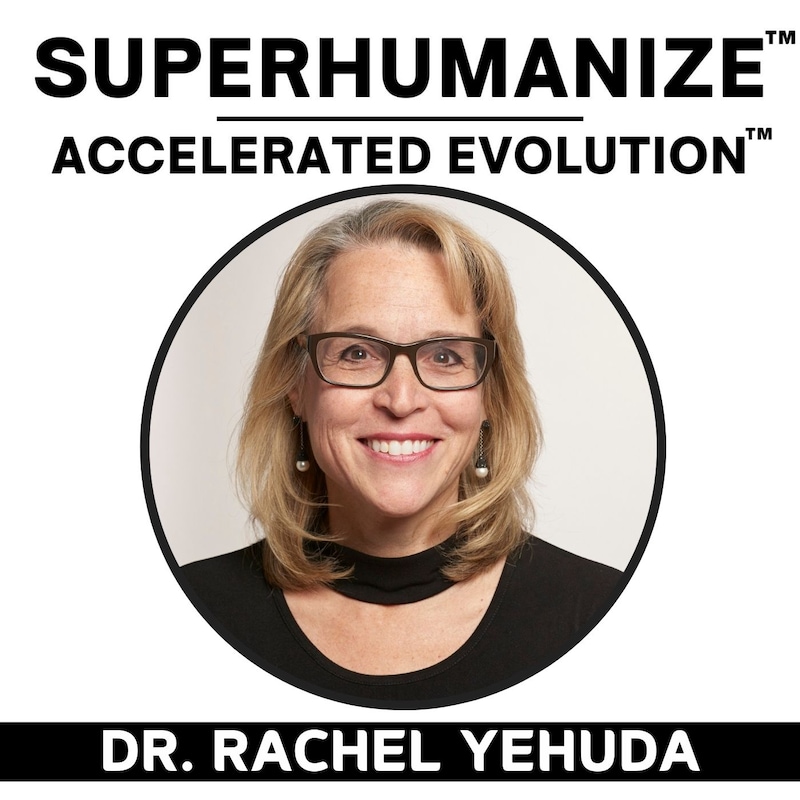Shownotes
At present, we're witnessing exciting developments with regards to novel treatments for trauma and PTSD. There have been compelling study results using substances like MDMA and psilocybin, and they could become game changers with how we treat individual and maybe even collective suffering and trauma in the future, once these substances are legalized for medical and therapeutic use.
My guest today, Dr. Rachel Yehuda, is the director of the Center for the Study of Psychedelic Psychotherapy and a professor of Psychiatry and Neuroscience at the Icahn School of Medicine at Mount Sinai. Dr. Yehuda has researched trauma and its treatment for three decades. She has authored more than 450 published papers in the field of trauma and resilience.
Her work with populations, including military veterans and Holocaust survivors, has revealed the underlying biology of trauma and PTSD, including its intergenerational effects.
In my discussion with Dr. Yehuda, you'll learn...
-Why the government is suddenly interested in psychedelics again...03:15
- Randomized clinical control trails are showing great efficacy for treatment of PTSD and depression
-MDMA treatment for PTSD...04:55
- Synthesized in 1912
- Recent studies at MAPs (multidisciplinary Association of Psychedelics)
- MDMA in psychotherapy is very helpful for PTSD patients
- Still doing research and waiting for approval to begin treatment
-Pharmacologic effects of MDMA and how it helps heal...07:30
- Releases serotonin, dopamine, norepinephrine
- Still unsure if the surge of hormones is what gives the therapeutic effects
- It's still a very big mystery that needs more research
- Learning how best to facilitate the therapeutic process
- Helps people feel more open, feel more self-compassion, are more ready to engage in a trusting relationship - these qualities are what is conducive to healing
-Effectiveness of therapeutic MDMA treatment...11:50
- Medicine is administered to suppress symptoms; MDMA treatment is an acute administration that will allow someone to experience transformational change
- The goal is that they will no longer have to suppress symptoms
- "Psychedelics are to psychiatry as the telescope is to astronomy"
- Stuck in a narrative
-How trauma affects us biologically...15:50
- The question of whether PTSD be something pathological or something that teaches us to cope and adapt
- The effects of trauma are systemic and very overwhelming to metabolize
- Not all trauma effects are "bad"
- Psychedelic psychotherapy helps to accept the trauma and make space for it
- Most successful path is to learn from the trauma and grow through the trauma
-Intergenerational trauma link and Intergeneration transmission...27:25
- Study of Holocaust survivors and genetics of 22 survivors born from these survivors
- The children of people who have been exposed to trauma may also feel affected
- American Journal of Psychiatry: Epigenetic's on the stress related gene in Holocaust survivors vs. Jewish children of American parents that were not exposed to the Holocaust
- Experiences with ancestral heritage can intersect in our own lives
-What influenced Dr. Rachel Yehuda to become a scientist...35:15
- Philosophy background
- Curiosity of what our purpose is and why we are here
-Psilocybin for therapeutic PTSD treatment...37:05
- Companies focused on psychedelic treatment
- Compass Pathways
- MindMed
-The importance of bullet-proof science in studying psychedelics for therapy...38:05
- Creating knowledge about how these drugs work with psychotherapy and without
- Clinical trials, science and discoveries are important
- Currently evaluating individual differences in people and environments in various treatments
-Dr. Yehuda's experience from therapeutic MDMA...44:15
- FDA protocol says therapists must also experience the same therapy
- Yehuda was in a study where she experienced placebo one day and psychedelics another day
- 8 hours of psychotherapy + placebo day was very beneficial for her
- Experienced safety, self-compassion and willingness to open up
-Rachel's practices...47:35
- Walk daily in nature
- Making time for movement
- Connect with Dr. Yehuda:
- Twitter: @rachelyehuda



